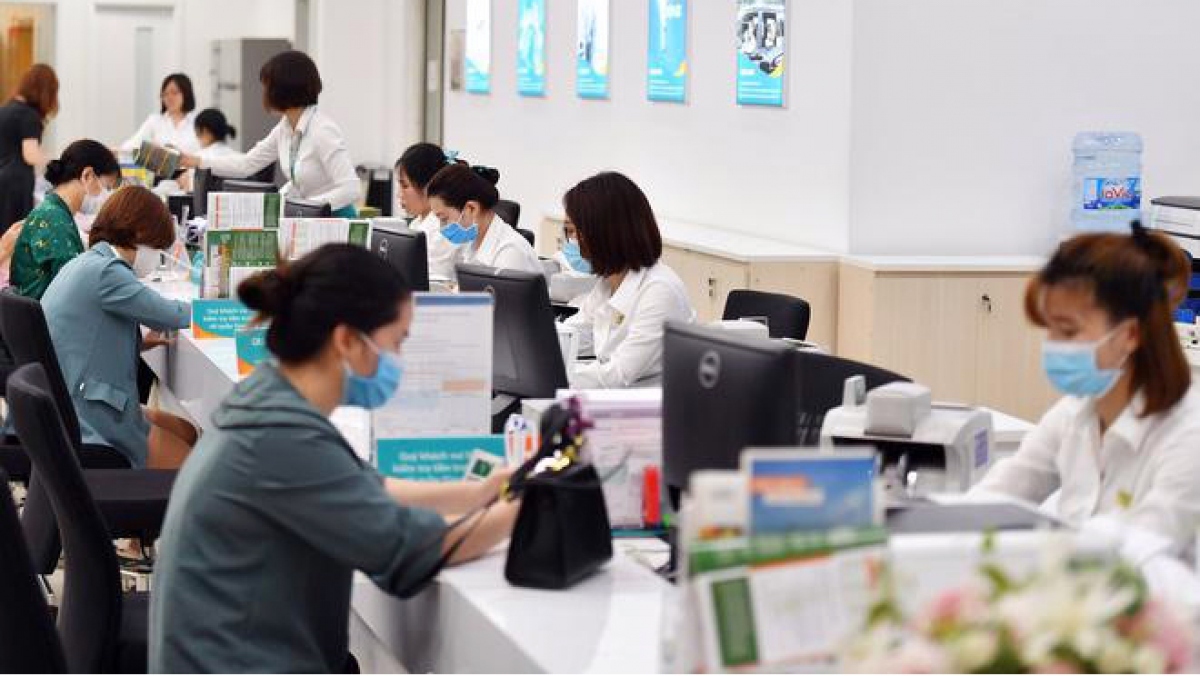Vietnam optimises monetary policy for inflation control, macroeconomic stability
VOV.VN - This year has seen the State Bank of Vietnam (SBV) operate a flexible monetary policy aimed at controlling inflation, supporting further economic recovery, adapting to market fluctuations, and ensuring the safety of the banking system.

Since the beginning of the year, the SBV has closely followed macroeconomic and monetary developments in a bid to promptly adjust policies and apply necessary tools, thereby helping to stabilise the macro-economy, control inflation at a low level, support continued economic recovery, and ensure stable operations of credit institutions.
While roughly 80 countries worldwide recorded two-digit inflation, Vietnam has competently controlled inflation at a low level of around 3%, thereby creating the foundation to maintain macroeconomic stability and ensure the major balances of the economy.
This represents an important basis for international organisations to make a positive assessment of the Vietnamese development situation and prospects, said a SBV leader.
Amidst pressure from continued globally-rising inflation, the central bank has twice moved to raise operating interest rates in an attempt to control inflation and stabilise the macro-economy and currency.
This is a timely solution in line with the general trend around the world to stabilise the foreign exchange market and to ensure system safety, said the SBV leader.
The central bank also directed credit institutions to reduce operating costs, administrative procedures, and unnecessary expenses to reduce lending interest rates as a way of supporting businesses and people to overcome difficulties, added the leader.
After the SBV’s decision to adjust the credit target for the year by about 1.5% to 2%, the credit of the entire economy reached over VND11.78 quadrillion by December 21, representing an increase of 13.96% compared to the same period from 2021. Credit institutions prioritised lending capital for production and business operations, whilst credit for potentially risky sectors was put under close scrutiny. Credit balance for 23 policy credit programmes as of November 30 reached nearly VND280 trillion, representing an increase of 12.81% compared to 2021, with more than 6.4 million outstanding loan customers.
Moving forward to 2023, the SBV plans to continue to operate the monetary policy prudently, flexibly, and synchronously, in close association with fiscal policy and other macroeconomic policies, contributing to controlling inflation at around 4.5%, stabilising the macro-economy, and ensuring major balances for the economy.
It will manage credit growth reasonably in line with macroeconomic developments, helping to control inflation, supporting economic recovery and growth, and concentrating capital on production and business, especially priority areas. It will also keep a tight grip on credit into risky fields whilst improving credit quality.
Another important task is to continue to review, amend, and supplement the legal framework, mechanisms, and policies on monetary and banking activities, ensuring the money market and credit institutions operate in a safe, healthy, smooth, and sustainable manner.
Finally, the central bank will continue to encourage cashless payments, accelerate digital transformation, apply new business models, and provide convenient and safe technology products and services which are capable of meeting the needs of both people and businesses.

